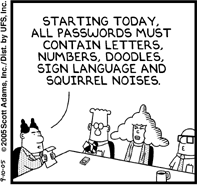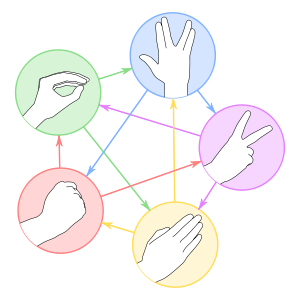More people view web content on phones and tablets than on laptops and desktops. If your website looks bad on mobile, your website is broken for most people most of the time.
The question is whether you also need a mobile app in addition to a mobile-responsive website. The answer is no, you almost certainly don't.
You should only create a mobile app if you can't accomplish the same functionality on a responsive website. (And even then, you need a mobile website to sell and support the app.)
There are two hurdles that your application or service must jump before it is worthy of being a mobile app: hardware necessity, and frequency of need. Here's how it breaks down.
Mobile App Requirement #1: Hardware Necessity
Hardware necessity means at least one of the following is absolutely true for every user every time they use the app:
- The app requires the phone's camera
Photo apps clearly fall into this category, as do some document-recognition apps that use the camera to facilitate OCR scanning - The app requires the phone's GPS locator
Map-based apps clearly fall into this category, though you'd be surprised how easy it is to type in an address these days, especially with browser autocomplete - The app requires the phone's microphone
Very few apps legitimately use sound or speech as a primary data source, but Skype and Shazam are on the list - The app requires the phone's accelerometer
Fitness apps and games are basically the only real entries here - The app requires a Bluetooth/NFC connection to peripheral hardware
Fitness apps that talk to fitness trackers make up the bulk of this category, though some toys allow you to use your phones as Bluetooth remotes, and some payment apps use NFC - The app can and must function offline, without an internet connection
Can your app actually deliver value (store enough data locally, not update it, and still work) without an internet connection? And will anyone ever really need to use it so badly they can't wait until they get off the airplane? A blood glucose journal for diabetics is an example of an app that qualifies here.
If at least one of those items above isn't universally and constantly true for your application, it doesn't need to be a mobile app. It should be a responsive website.
Mobile App Requirement #2: Frequency of Need
Frequency of need means that your users will access the app so frequently that it merits the improved experience of an app over a website. As Birdly found out, hardware necessity alone can't justify an app. Storage space on phones is precious and, if your app isn't in frequent use, it will get dumped. Screen space is at even more of a premium on mobile devices so, if your app isn't frequently used, it won't earn a spot on a main page of icons, and thus will likely be forgotten in the "other apps" list of bloatware and also-rans.
Frequency of need trumps hardware necessity when it comes to mobile apps. Messaging apps like Slack, or social apps like Twitter, work just fine as responsive websites. Their mobile apps succeed because users interact with them multiple times per day, if not multiple times per hour. Push notifications become relevant in that situation. Moreover, push notifications are perhaps the core value-add of mobile email apps; I know the moment a new message arrives. Otherwise, I can just check my mail at Gmail.com. The Gmail app earns its value because I so frequently need my latest messages that I want the app to tell as soon as they've arrived, so I don't have to check.
Even if you can show hardware necessity, without frequency of need, your app won't get used, won't make money, and won't justify the constant laborious and expensive upkeep of maintaining multiple versions of your app for multiple releases of multiple mobile operating systems. (This, incidentally, is why your marketing agency wants to sell you an app; they want the recurring revenue of updating it every time Apple releases a new version of iOS, or Google updates Android.)
If what you're selling is an app, and the typical user won't use the app at least weekly, your app will fail. Don't build it. End of story.
Everyone should have a mobile-responsive website. Almost no one should have a mobile app. Anyone who says otherwise is a fool, a liar, or both.












































